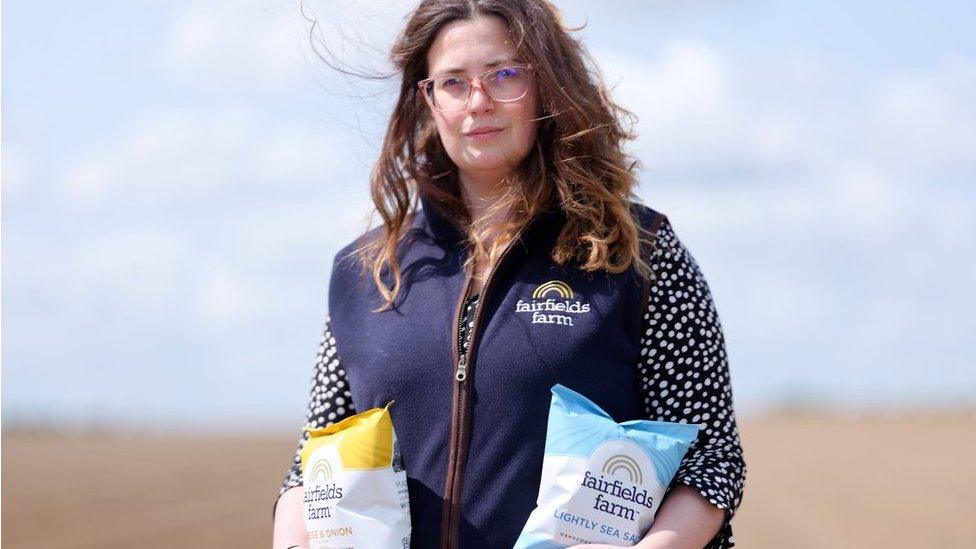Decades-old litter in Woodbridge museum to show waste impact
- Published
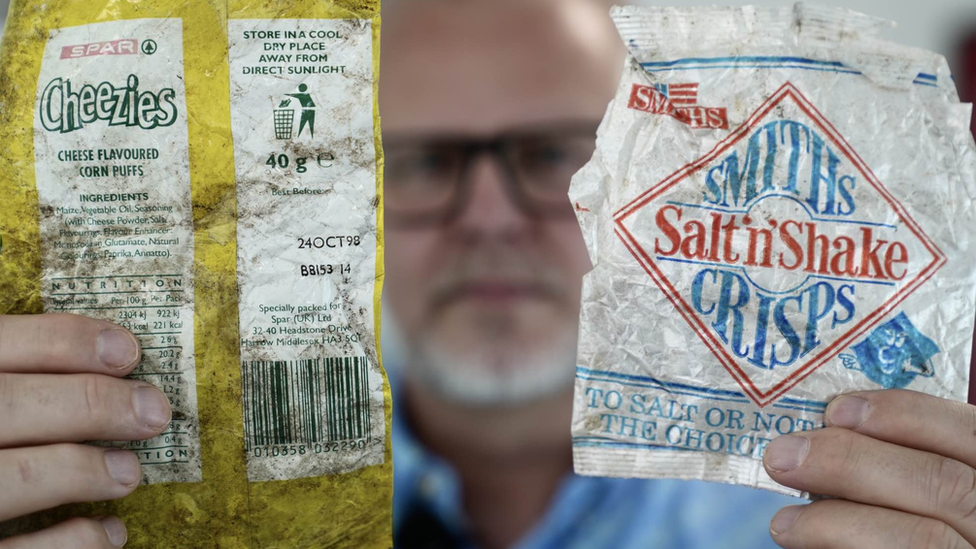
Jason Alexander says he started cataloguing objects he collected during litter-picks
An anti-litter campaigner has set up a museum to highlight the impact of litter on the environment.
During lockdown, Jason Alexander started cataloguing objects picked up during litter-picks.
His museum in Woodbridge, Suffolk, due to open in the next few weeks, will show items collected across the county.
He said: "This stuff doesn't just disappear, we may just use it for a couple of minutes but it can hang around for years."
All of the items have been picked up from rivers and beaches.
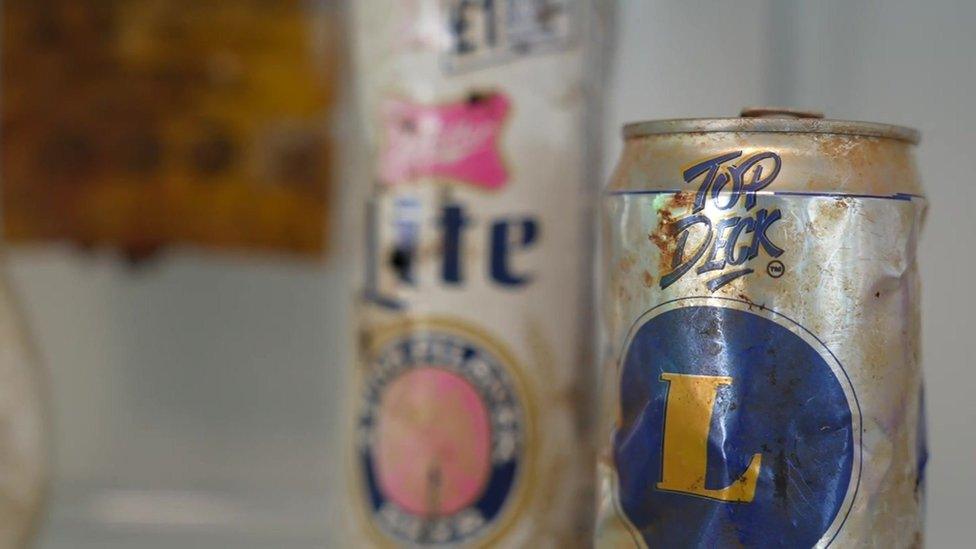
Some of the brand names seen on items in the museum no longer exist
He said: "I've done thousands of litter picks and beach cleans, picked up millions of pieces of litter and you inevitably find lots of interesting stuff.
"All of the items have been found during beach cleans and litter picks around Suffolk."
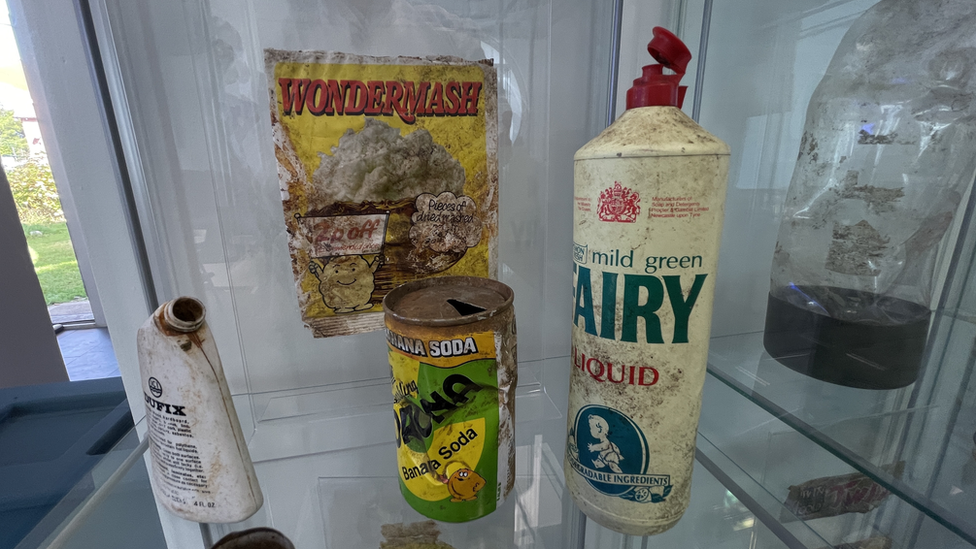
Some of the oldest items in the collection include a surgical suture, glass bottles, jam lids and a yoghurt pot
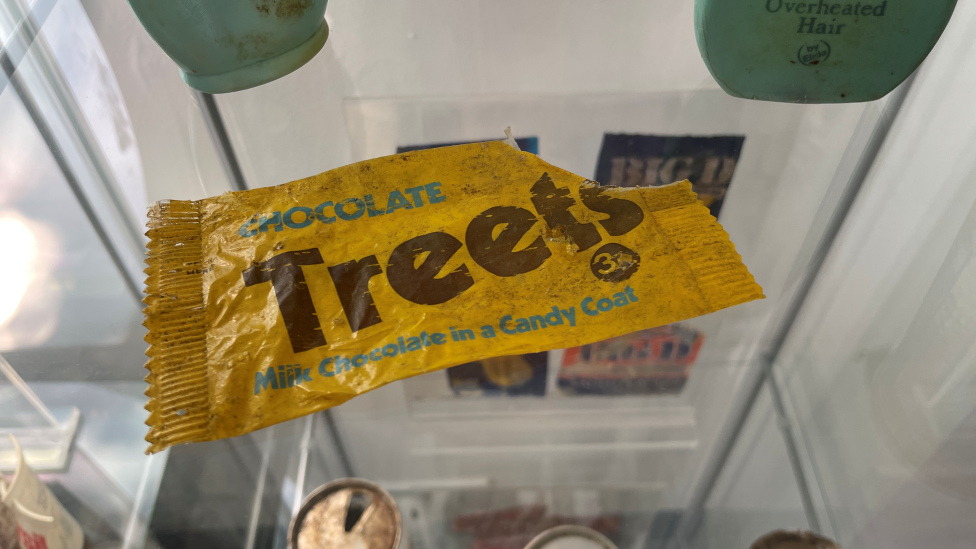
The items have all ben found on litter picks and beach cleans
The oldest item in his collection is a sterilized surgical suture from 1920 which Mr Alexander found himself in Ipswich. Some of the more recent items include a variety of crisp packets from the late 1990s.
"What's really interesting is that from the 1950s you start to see pieces of plastic coming into the mix and we've found some early plastic items," he said.
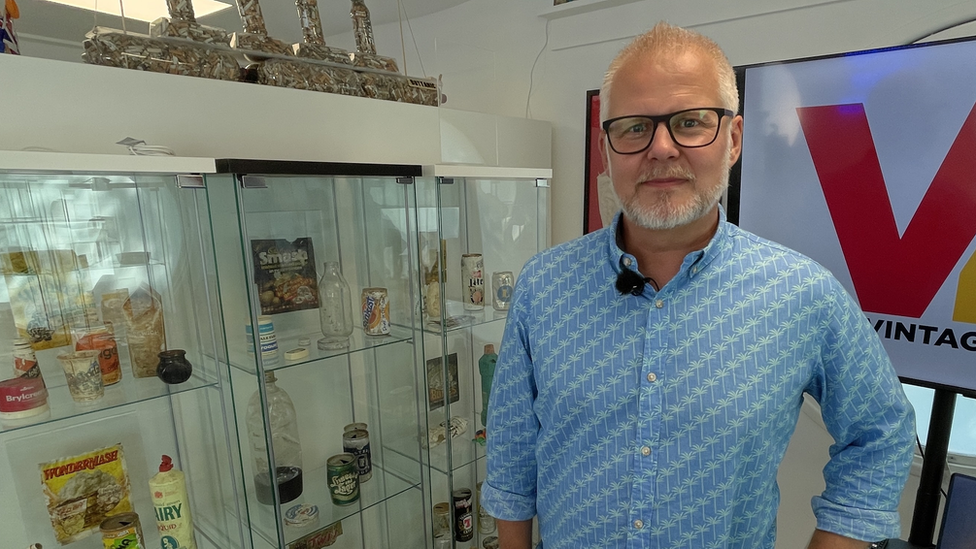
Jason Alexander was brought up litter picking and wants to help educate people on how long waste can last in the environment
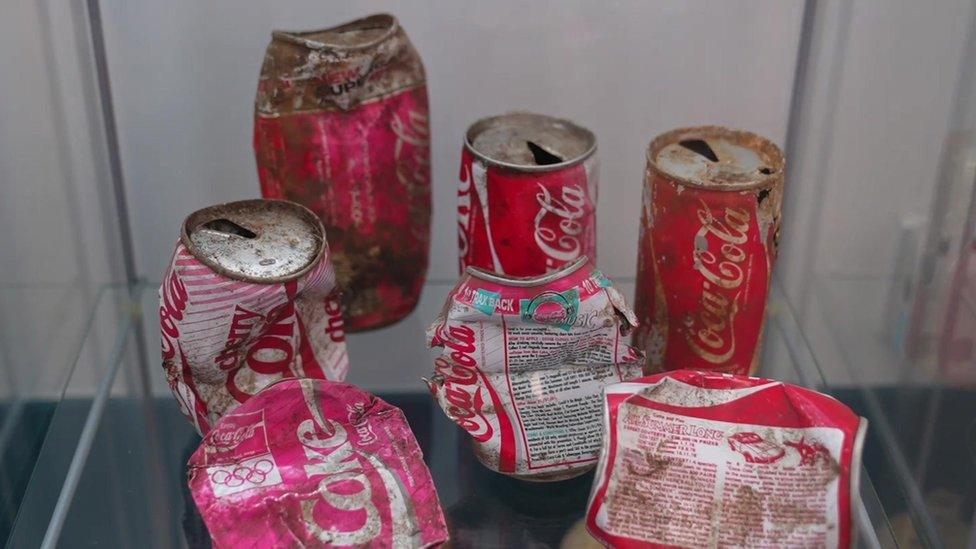
Coca-Cola cans from through the decades are among the items picked up
He started collecting items in 2014, but said he was brought up to pick litter and hoped this exhibition will make visitors realise how long their rubbish can last for in the environment.
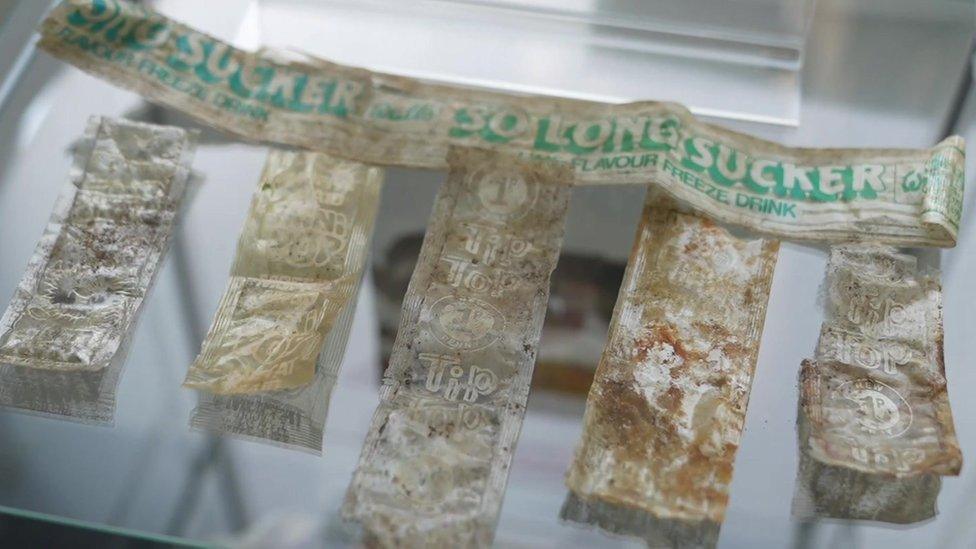
Mr Alexander said the finds highlighted how long plastic lasted
He said: "This stuff doesn't just disappear, we may just use it for a couple of minutes but it can hang around for years in the environment.
"If you can stand in front of someone with a crisp packet that's over 50 years old that looks like it was dropped yesterday then it really hits home how long this stuff lasts."
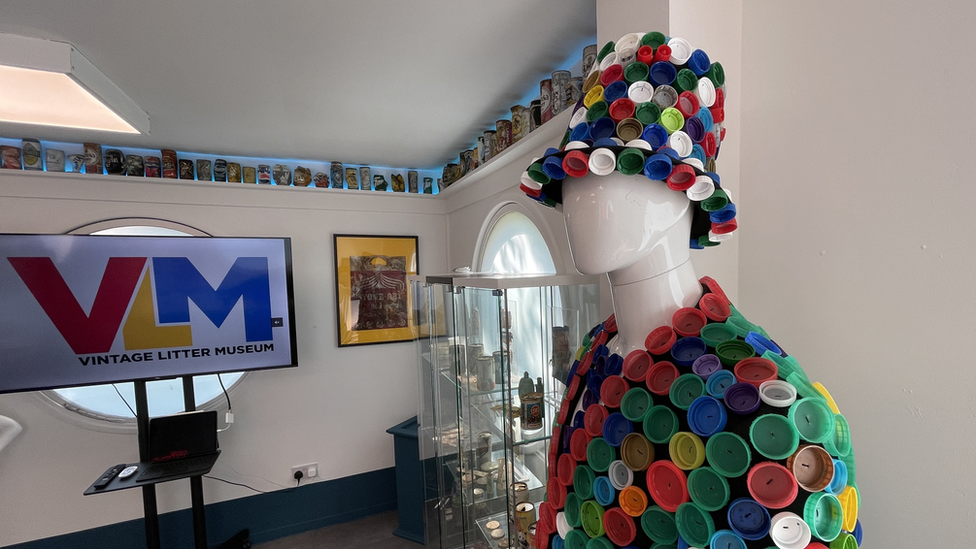
John Read from Clean up Britain said litter was an "appalling spectacle of the present"
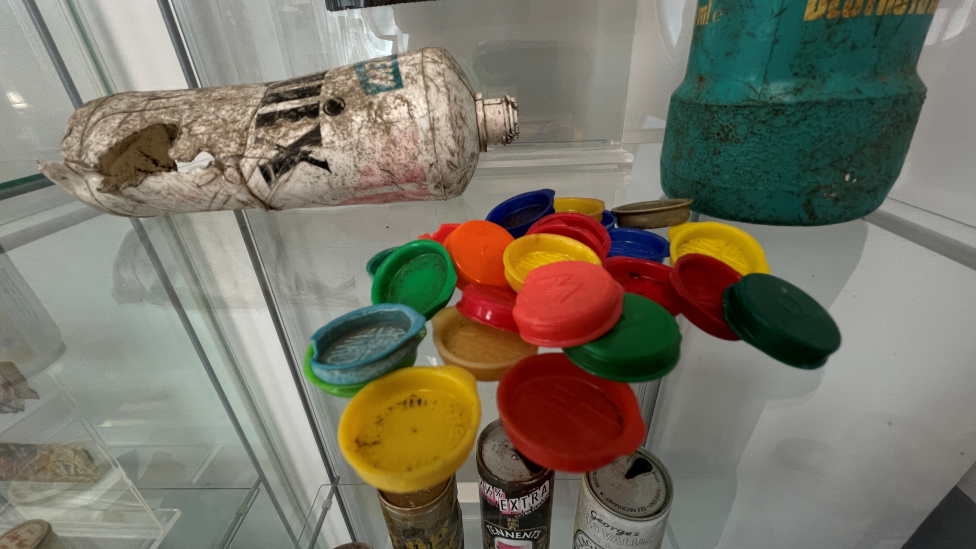
Mr Alexander hoped visitors will realise the impact of litter on the environment
He started collecting items in 2014, and was always brought up to pick litter but says things need to change to get people to properly dispose of their waste.
He said: "If you look at many of the items from the 50s, from 60s, the 70s you'll find the tidy man logo.
"You'll find notes on there saying please don't drop your litter, please dispose of it in a bin from 40, 50 years ago.
"It's the same messaging as what we're doing now... we've got to find new and interesting ways of getting that message across to people that this stuff doesn't belong in the environment."
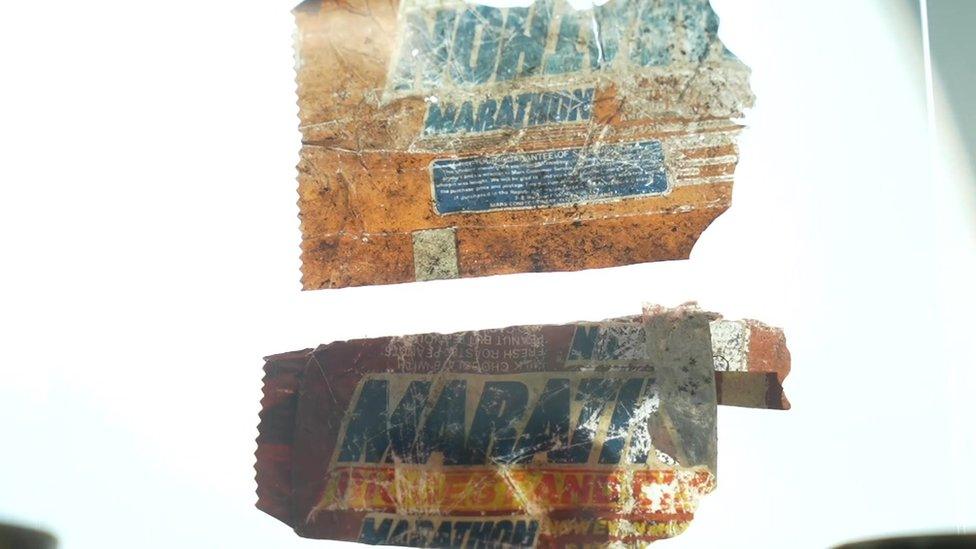
Marathon bars became known as Snickers in 1990
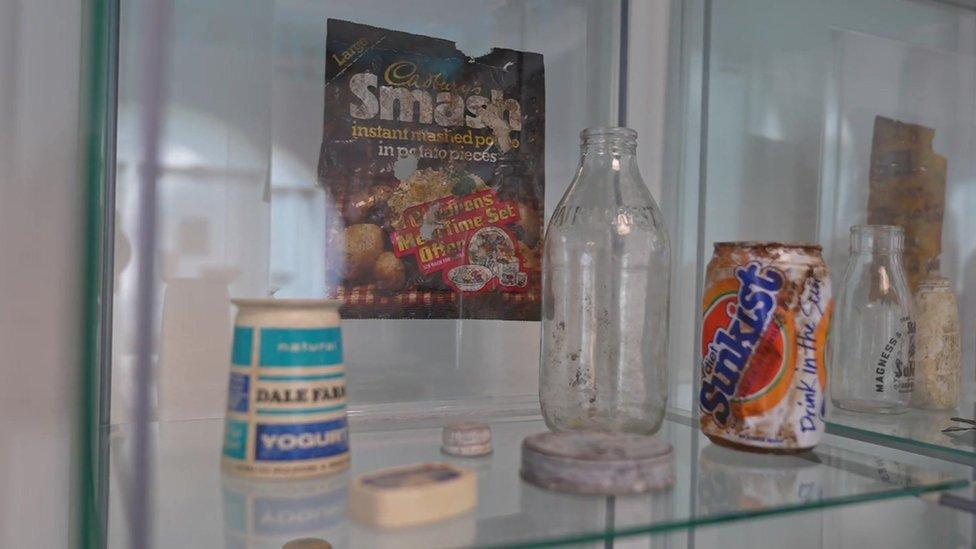
A Sunkist can and milk bottle are among the items on display
He said the museum would initially open a few days a week on an appointment-only basis.
John Read, founder of Clean Up Britain said it was a sad fact that litter museums were not needed as it is "very much an appalling spectacle of the present".
"No-one needs to go to a museum to see litter," he said. "It lies on virtually every street, road, pavement and park in Britain, and is testament to what a filthy and polluted country we have become - lacking in pride and respect for the environment we live in."

The museum in Woodbridge will initially open a few days a week on an appointment-only basis

Follow East of England news on Facebook, external, Instagram, external and X, external. Got a story? Email eastofenglandnews@bbc.co.uk, external or WhatsApp 0800 169 1830
Related topics
- Published17 May 2023
